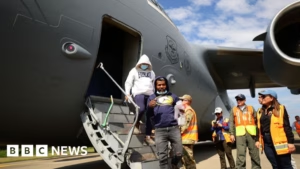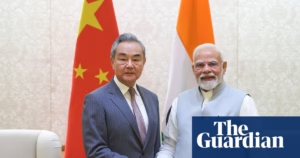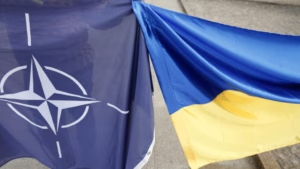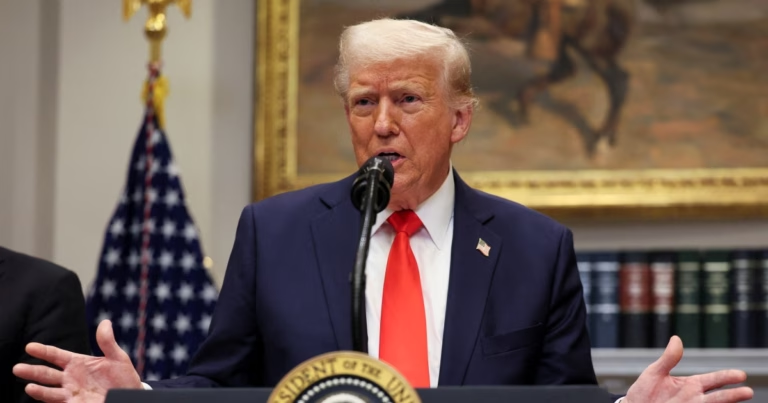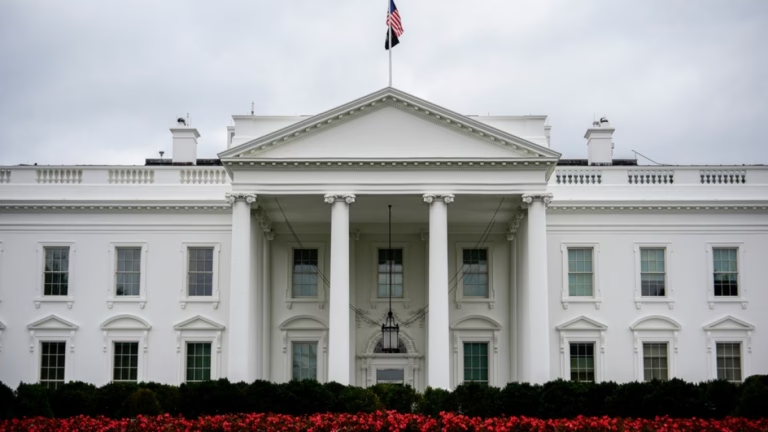The US president states he won’t allow Iran to restart its nuclear program, while also mentioning that Iranian officials wish to meet with him.
Addressing reporters on Air Force One on Friday, he claimed that he believed Tehran’s nuclear program had been indefinitely halted, even though he conceded the possibility of Iran restarting it elsewhere.
President Trump said that he will discuss Iran with Israeli Prime Minister Benjamin Netanyahu during his upcoming visit to the White House, where they are expected to address a potential Gaza ceasefire.
While traveling to New Jersey after Independence Day celebrations at the White House, Trump stated, “They would have to start at a different location. And if they did start, it would be a problem.”
He emphasized that he would not allow Tehran to resume its nuclear program, adding that Iranian officials wanted to meet with him.
Owing to the ongoing standoff regarding the return of inspectors to Iran’s nuclear facilities, which were bombed by the US and Israel, the International Atomic Energy Agency (IAEA) announced pulling its inspectors from the country on Friday.
The US and Israel argue that Iran was enriching uranium to build nuclear weapons, a claim vigorously denied by Tehran, which has consistently maintained its nuclear program is for civilian purposes only.
Following Israel’s first military strikes on Iran’s nuclear sites during a 12-day war with the Islamic Republic three weeks ago, the US supported its ally by launching massive strikes on these sites on June 22.
Since the start of the conflict, the IAEA’s inspectors have been prevented from inspecting Iran’s facilities, a situation deemed a top priority by the agency’s Director-General Rafael Grossi.
Distrust of IAEA
In the wake of the attacks by the US and Israel, Iran, still committed to the Treaty on the Non-Proliferation of Nuclear Weapons (NPT), has expressed deep distrust towards the IAEA.
Following the attacks, Iranian officials criticized the IAEA for failing to condemn them and for passing a resolution accusing Iran of non-compliance with nuclear obligations just one day prior to the strikes.
Last Wednesday, Iran’s President Masoud Pezeshkian ordered the country to sever ties with the nuclear watchdog, a move made in response to what Iran perceives as a violation of its national sovereignty and territorial integrity.
Iran has stated that the suspension of IAEA ties will continue until guarantees are provided for the security of its nuclear facilities and scientists, according to Iranian state television.
On Monday, the request for IAEA Director-General Rafael Grossi to visit nuclear facilities bombed by Israel and the US was dismissed by Foreign Minister Abbas Araghchi as “meaningless and possibly even maligned in intent.”
Tehran’s estimate of the damage from the military strikes varies, but it is concerned about the status of its nine tonnes of enriched uranium, particularly the more than 400kg enriched to up to 60 percent purity, which is a long way from weapons-grade levels.

